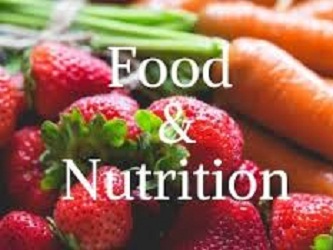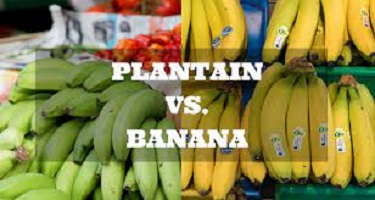Food and Nutrition: Basic Nutrition Concepts
Food & Nutrition Introduction
Food and nutrition dictionary definition is the effective management of food choices and nutrition that can help to prevent disease. Nutrition begins with food.
Understanding good nutrition and paying attention to what you eat can help you maintain or improve your health.
It’s so important that many organizations, agencies, websites, magazines, articles, essays, even school courses (Home economics) dwell so much on this topic.
Nutrition definition is the science that construes the interaction of nutrients, and other substances in food. This is subject to the maintenance, growth, reproduction, health and disease of an organism.
It includes food intake, catabolism, assimilation, biosynthesis, absorption, and excretion.
The diet of an organism is what it eats, which is largely determined by the accessibility and tastiness of foods.
Above all for humans, healthy food includes preparation of balanced diet and storage food methods. It is also, the preservation of nutrients from oxidation, heat or leaching, which reduces the risk of food borne illnesses.
Food and Nutrition Service: Plan of Action in Nigeria
The Food and Nutrition Service (FNS) is an agency of the United States Department of Agriculture (USDA). It is responsible for administering the nation’s domestic nutrition assistance programs.
In Nigeria, the Action plan policy is to improve the nutritional status of all Nigerians, with particular emphasis on the most vulnerable groups, i.e., children, women, and the elderly.
What Is Good Nutrition?
Nutrition is the process by which the body nourishes itself by converting food into energy and body tissues.
The science of nutrition concerns everything the body does with food to carry on its functions. Food offers essential substances called nutrients.
Food is essential because it provides vital nutrients for survival, and helps the body function and to stay healthy.
These nutrients are divided into 6 major types: carbohydrates, proteins, fats, vitamins, minerals, and water.
Food comprises macro nutrients including protein, carbohydrate, and fat.
The macro nutrients not only offer calories to fuel the body and give it energy but play specific roles in maintaining health.
Food also supplies micro-nutrients (vitamins and minerals) and phytochemicals.
These micro-nutrients do not provide calories but serve a variety of functions to make sure the body operates optimally.
Water
Water helps to regulate body temperature, transports nutrients to cells, and rids the body of waste materials.
Drink water every day. It is the best drink to choose from. Moreover, it’s cheap, quenches your thirst and has no kilo joules
Calories and Energy Balance
The body’s most basic need is for energy. The energy in food is measured in units called kilo calories (commonly shortened to “calories”).
One kilo calorie is the amount of heat energy needed to raise the temperature of 1 kilogram (2.2 pounds) of water 1° C (1.8° F).
More precisely, it is the energy required to raise that water from 14.5° C to 15.5° C at one atmosphere of pressure.
A calorie is a unit of energy. In nutrition, calories refer to the energy people get from the food and drink they consume, and the energy they use in physical activity.
It differs based on age, sex, size, and activity level.
The United States government states that the average man needs 2,700 kcal per day and the average woman needs 2,200 kcal per day. The key is consuming the right amount of calories each day.
Food & Nutrition Administration
A healthy diet includes a lot of natural foods. A sizeable portion of a healthy diet should consist of fruits and vegetables, especially ones that are red, orange, or dark green.
Whole grains/nuts, such as whole wheat and brown rice, should also play a part in your diet.
For adults, dairy products should be non-fat or low-fat. Protein can consist of lean meat and poultry, seafood, eggs, beans, legumes, and soy products such as tofu, as well as unsalted seeds and nuts.
Good nutrition also involves avoiding certain kinds of foods. Sodium is used heavily in processed foods and is dangerous for people with high blood pressure.
The USDA advises adults to consume less than 300 milligrams (mg) per day of cholesterol (found in meat and full-fat dairy products among others).
Fried food, solid fats, and trans fats found in margarine and processed foods can be harmful to heart health.
Refined grains (white flour, white rice) and refined sugar (table sugar, high fructose corn syrup) are also bad for long-term health, especially in people with diabetes.
Alcohol can be dangerous to health in amounts of more than one serving per day for a woman and two per day for a man.
Nutritional Deficiencies
Malnutrition is an imbalance between the body’s demand for nutrients and its available supply of nutrients.
Malnutrition can result from substandard diet or from a disorder that interferes with the body’s use of food
Even if you are getting enough to eat, if you are not eating a balanced diet, you may still be at risk for certain nutritional deficiencies.
Similarly, you may have nutritional deficiencies due to certain health or life conditions, such as pregnancy, or certain medications you may be taking, for example, high blood pressure medications.
People who have had intestinal diseases or had sections of intestines removed due to disease or weight loss surgery also may be at risk for vitamin deficiencies.
Alcoholics are also at high risk of having nutritional deficiencies.
One of the most common nutritional deficiencies is iron deficiency anemia.
Your blood cells need iron in order to supply your body with oxygen, and if you don’t have enough iron, your blood will not function properly.
Other nutritional deficiencies that can affect your blood cells include low levels of vitamin B12, folate, or vitamin C.
Vitamin D deficiency may affect the health of your bones, making it difficult for you to absorb and use calcium (another mineral that you may not be getting enough of).
Although you can get vitamin D by going out in the sun, many people with concerns about skin cancer may end up with low levels of vitamin D by not getting enough sun.
Other Nutritional Deficiencies Include:
- Beriberi: low levels of vitamin B1 (found in cereal husks)
- Ariboflavinosis: low levels of vitamin B2
- Kwashiorkor: which results from severe protein deficiency, is common among young children
- Pellagra: low levels of vitamin B3
- Hypocobalaminemia: low levels of B12
- Paraesthesia: low levels of vitamin B5 leading to “pins and needles” feeling
- Vitamin K deficiency
- Biotin deficiency: low levels of vitamin B7, which can be common in pregnancy
- Night blindness: low levels of Vitamin A
- Scurvy: low levels of vitamin C
- Rickets: severe vitamin D and/or calcium deficiency
- Magnesium deficiency: occurs with certain medications and medical problems
- Potassium deficiency: occurs with certain medications and medical problems
In summary, eating a balanced diet can help prevent these conditions. Vitamin supplements may be necessary for certain people, such as pregnant or nursing mothers and people with intestinal conditions.




Pingback: Health Benefits of Gingerbread (With Recipe Ideas) - 9jafoods